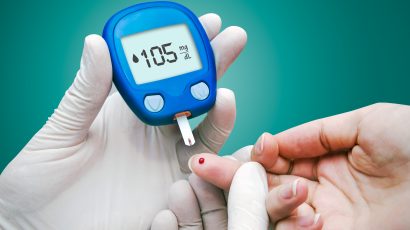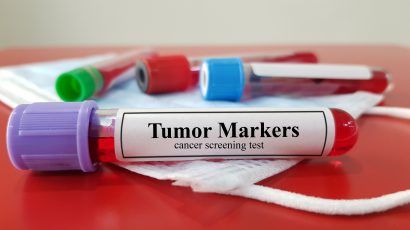View all the latest news stories and events from HTE

28th February 2023
The COVID-19 pandemic provided the unexpected conditions for an unprecedented natural experiment in the healthcare sector. A substantial increase in healthcare demand was combined with mandatory distancing measures. This prevented patients from accessing, and clinicians from providing, healthcare by traditional routes. The result was a rapid development and acceleration of the implementation of technology in the healthcare market. Large-scale adoption of technological innovations produced efficient and cost-effective solutions which helped to mitigate the effect of the Covid-19 pandemic, but also may help to address growing unmet needs in the NHS.
28th February 2023
Creating and producing medical technologies is often a challenging process. To create successful Medical Technology innovations, they need to excel in functionality, safety, efficiency, and usability. But technical or functional excellence is not enough. Technology does not in itself improve healthcare. It needs to be used by clinicians and, in many cases, patients or their carers. So, to launch a technology that is integrated into care-management routines and well-accepted by end-users, innovators need to include user perspectives within the design process.
28th February 2023
This report looks at Climate Change - A Global crisis. According to the World Health Organisation, climate change is the “greatest threat to global health in the 21st century”. The NHS is committed to playing it's part in helping the country achieve it's climate goals. What is the role of technology and innovation in reducing the carbon footprint of the UK's largest employer.
22nd August 2022
Diabetes Mellitus (or “Diabetes”) can be considered as two separate conditions; Diabetes Type 1(T1), a genetically caused chronic autoimmune condition, and Diabetes Type 2 (2), a reversible lifestyle condition. These two conditions require two different management strategies to contain the escalating costs of the disease at a public health level. Diabetes of both forms cannot […]
30th November 2020
This MedTech NAVIGATOR Report provides a health economist’s perspective on the early detection and diagnosis of cancer. The report will be relevant to SMEs and healthcare professionals based in the UK and to those based further afield. Though cancer has been around throughout most of human recorded history, it is only recently, as the demographic composition of the human population has changed, that it emerged as a […]
31st March 2021
This MEDTECH NAVIGATOR Report provides a landscape assessment of the innovations under development in the area of healthy ageing and elderly care. The report will be relevant to SME’s based in the UK and to those based further afield. The UK Elderly Population in Statistics The world’s population is ageing at a rapid rate and […]
15th July 2021
This MedTech NAVIGATOR Report provides a landscape assessment of the innovations under development in the area of cardiovascular disease. The report will be relevant to SMEs based in the UK and to those based further afield. This report contains information relevant to those developing innovations in cardiovascular disease. An assessment of the industry landscape is […]
2nd September 2021
Furthermore, CVDs are responsible for some of the most significant healthcare inequalities seen in the UK and responsible for higher premature death rates in socio-economically deprived areas. Bringing about reductions in CVD has become a national priority for the UK with the NHS Long Term Plan identifying cardiovascular disease as the single biggest risk area […]
22nd August 2022
Globally, we are witnessing an ever-increasing disease burden associated with increasingly comorbid and ageing populations. Further, the impact of COVID-19 pandemic has underscored the importance of establishing a critical care system that is more budget-efficient, personalised and provide digitally enabled care across the NHS. Developments in AI, genomics, glucose monitoring and delivery systems, applications, wearables, […]
19th January 2022
Globally, we are witnessing an ever-increasing disease burden associated with increasingly comorbid and ageing populations. Further, the impact of COVID-19 pandemic has underscored the importance of establishing a critical care system within the NHS that is more budget-efficient, personalised, and less invasive. Developments in technologies such as AI, genomics, VR/AR, imaging, and robotics can help […]
23rd August 2022
In the report we explore ways in which organisations can recruit, motivate, retain, promote and support people from all backgrounds in life and asks the question ‘does medicine discriminate against non-white people and women’? The MedTech industry is a key sector within the UK economy. According to recent figures from the Association of British Healthcare […]
28th September 2020
Telehealth, used to provide care and services at a distance, has been around for over 100 years. But it took the sudden shock to the system created by Covid-19 to create the optimal conditions for a sudden burst in uptake for a technology which has thus far been waiting in the wings. How lasting this […]
28th September 2020
This MedTech NAVIGATOR Report provides a landscape assessment of the innovations under development in the area of digital health. The report will be relevant to SMEs based in the UK and to those based further afield. Key Findings of the report: Digital technology has advanced exponentially in the last decade and whilst technology has transformed […]
21st February 2020
Unmet clinical needs white paper This MedTech NAVIGATOR Report provides a landscape assessment of the health economics of respiratory disease. The NHS Long Term Plan, published Jan 2019, has identified the area of respiratory diseases as one of the top clinical priorities. Approximately 12.7 million people in the UK, equivalent to one in five people, are living […]
21st February 2020
This MedTech NAVIGATOR Report provides a landscape assessment of the innovations under development in the area of respiratory disease. The report will be relevant to SMEs based in the UK and to those based further afield. Respiratory disease affects approximately 20% of people and is the third biggest cause of death in England. Lung cancer, […]
22nd January 2022
If we elevate this principle from the individual patient to all patients in the NHS, knowing the sacrifices to be made, by deciding to undertake a specific surgical intervention, is crucial to ensure the fair and equitable allocation of healthcare resources. Health economic evaluation provides a vehicle for understanding these opportunity costs and weighing them […]